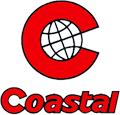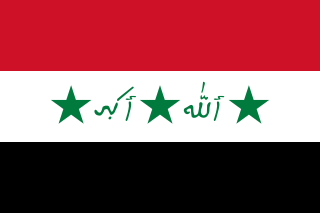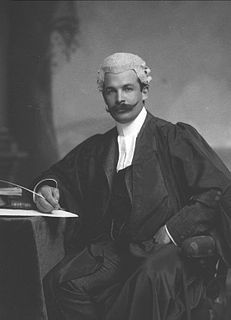
Iraq actively researched and later employed weapons of mass destruction from 1962 to 1991, when it destroyed its chemical weapons stockpile and halted its biological and nuclear weapon programs. The fifth president of Iraq, Saddam Hussein, was internationally condemned for his use of chemical weapons during the 1980s campaign against Iranian and Kurdish civilians during and after the Iran–Iraq War. In the 1980s, Saddam pursued an extensive biological weapons program and a nuclear weapons program, though no nuclear bomb was built. After the Persian Gulf War (1990-1991), the United Nations located and destroyed large quantities of Iraqi chemical weapons and related equipment and materials, and Iraq ceased its chemical, biological and nuclear programs.

Iraq's era under President Saddam Hussein was notorious for its severe violations of human rights. Secret police, state terrorism, torture, mass murder, rape, deportations, forced disappearances, assassinations, chemical warfare, and the destruction of southern Iraq's marshes were some of the methods the country's Ba'athist government used to maintain control. The total number of deaths related to torture and murder during this period are unknown. Human Rights Watch and Amnesty International issued regular reports of widespread imprisonment and torture.
The Halabja chemical attack, also known as the Halabja Massacre or Bloody Friday, was a massacre against the Kurdish people that took place on March 16, 1988, during the closing days of the Iran–Iraq War in the Kurdish city of Halabja in Iraq. The attack was part of the Al-Anfal Campaign in northern Iraq, as well as part of the Iraqi attempt to repel the Iranian Operation Zafar 7. It took place 48 hours after the fall of the town to the Iranian Army. A United Nations (UN) medical investigation concluded that mustard gas was used in the attack, along with unidentified nerve agents.

Hussein Kamel Hassan al-Majid was the son-in-law and second cousin of Iraqi leader Saddam Hussein. He defected to Jordan and assisted United Nations Special Commission (UNSCOM) and International Atomic Energy Agency (IAEA) inspection teams assigned to look for weapons of mass destruction in Iraq.

The Iraq Liberation Act of 1998 is a United States Congressional statement of policy stating that "It should be the policy of the United States to support efforts to remove the regime headed by Saddam Hussein from power in Iraq ..." It was signed into law by President Bill Clinton, and states that it is the policy of the United States to support democratic movements within Iraq. The Act was cited in October 2002 to argue for the authorization of military force against the Iraqi government.

The Mid-continent oil field is a broad area containing hundreds of oil fields in Arkansas, Kansas, Louisiana, New Mexico, Oklahoma and Texas. The area, which consists of various geological strata and diverse trap types, was discovered and exploited during the first half of the 20th century. Most of the crude oil found in the onshore mid-continent oil field is considered to be of the mixed base or intermediate type.

USS California (CGN-36), the lead ship of the California-class of nuclear-powered guided missile cruisers, was the seventh warship of the United States Navy to be named for the State of California.

The rationale for the Iraq War has been a contentious issue since the Bush administration began actively pressing for military intervention in Iraq in late 2001. The primary rationalization for the Iraq War was articulated by a joint resolution of the U.S. Congress known as the Iraq Resolution.

The Iraqi Armed Forces are the military forces of the Government of Iraq. They consist of the Iraqi Army, the Iraqi Air Force, and the Iraqi Navy.
American support for Ba'athist Iraq during the Iran–Iraq War, in which it fought against post-revolutionary Iran, included several billion dollars' worth of economic aid, the sale of dual-use technology, non-U.S. origin weaponry, military intelligence, and special operations training. However, the U.S. did not directly supply arms to Iraq. Of particular interest for contemporary Iran–United States relations are the repeated accusations that the U.S. government actively encouraged Iraqi leader Saddam Hussein to invade Iran, supported by a considerable amount of circumstantial evidence, but the U.S. government officially denies that any such collusion occurred, and no conclusive proof of it has been found.

The 1991 uprisings in Iraq were a series of popular rebellions in northern and southern Iraq in March and April 1991 in a ceasefire of the Persian Gulf War. The mostly uncoordinated insurgency, often referred to as the Sha'aban Intifada among Arabs and as the National Uprising among Kurds, was fueled by the perception that then Iraqi President Saddam Hussein was responsible for systemic social repression and had become vulnerable to regime change. This perception of weakness was largely the result of the outcome of two prior wars: the Iran–Iraq War and the invasion of Kuwait, both of which occurred within a single decade and devastated the economy and population of Iraq.
The Prevention of Genocide Act of 1988 was a United States Senate bill to punish Iraq for chemical weapons attacks on the Kurds at Halabja during the Iran–Iraq War. It was defeated after intense lobbying of Congress by the Reagan-Bush White House which then supported Iraq's Saddam Hussein as a counterbalance to post-revolutionary Iran.
Oscar Sherman Wyatt, Jr. is an American businessman and self made millionaire. He was the founder of Coastal Corporation and a decorated bomber pilot in World War II. In 2007 the U.S. federal court in Manhattan tried him for illegally sending payments to Iraq under the Oil-for-Food Program.

Iraq does not recognize Israel and consequently the two countries do not have any formal diplomatic relations. Iraq declared war on the newly established Jewish state in 1948 and since then the two countries have technically been in a state of war. Iraqi forces participated in wars against Israel in 1967 and 1973.

Coastal Corporation was a diversified energy and petroleum products company headquartered at 9 Greenway Plaza in Greenway Plaza, Houston, Texas. The company was founded in 1955 by Oscar Wyatt and incorporated in 1955 as Coastal States Gas Producing Company. It merged with the El Paso Corporation in 2001. As of 1999, Coastal was a Fortune 500 company with 13,300 employees and annual revenues of $8.2 billion.

House of Saddam is a 2008 drama that charted the rise and fall of Saddam Hussein. A co-production between BBC Television and HBO Films, the series was first broadcast on BBC Two in four parts between 30 July and 20 August 2008.

Ba'athist Iraq, formally the Iraqi Republic, covers the history of Iraq between 1968 and 2003, during the period of the Arab Socialist Ba'ath Party's rule. This period began with high economic growth and soaring prosperity, but ended with Iraq facing social, political, and economic stagnation. The average annual income decreased because of several external factors, and several internal policies of the government.
The timeline of the Gulf War details the dates of the major events of the 1990–1991 war. It began with the Iraqi invasion of Kuwait on 2 August 1990 and ended with the Liberation of Kuwait by Coalition forces. Iraq subsequently agreed to the United Nations' demands on 28 February 1991. The war officially concluded with the signing of the armistice on 11 April 1991. Major events in the aftermath include anti-Saddam Hussein uprisings in Iraq, massacres against the Kurds by the regime, Iraq formally recognizing the sovereignty of Kuwait in 1994, and eventually ending its cooperation with the United Nations Special Commission in 1998.
The 1979 Ba'ath Party Purge was a public purge of the Iraqi Ba'ath Party orchestrated on July 22, 1979 by then-president Saddam Hussein.

















